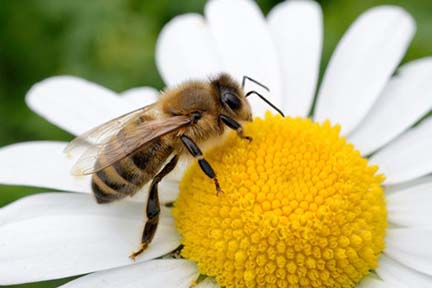
Heat Advisory in Effect This Week
|

|


FOR IMMEDIATE RELEASE June 19, 2024 Contact: press@michigan.gov
Gov. Whitmer and Lt. Gov Gilchrist Celebrate Michigan’s 18th Annual Juneteenth Freedom Day Recognition with a Proclamation
LANSING, Mich. — Today, Governor Gretchen Whitmer and Lieutenant Governor Garlin Gilchrist II proclaimed June 19th as Juneteenth Celebration Day in Michigan to celebrate African American history and culture and commemorate the end of slavery in America. This year marks the 18th annual State of Michigan Juneteenth Freedom Day Recognition.
“On Juneteenth, we commemorate the end of slavery and recommit ourselves to fighting for a more just and equitable Michigan,” said Governor Whitmer. “I am proud that we have declared Juneteenth a state holiday in Michigan, and I am grateful to President Biden for making it a federal holiday for all Americans too. Today, let’s reflect on our history and renew our commitment to building a state where every Michigander can thrive. Together, we will foster a stronger sense of unity and keep getting things done that make a real difference in people’s lives.”
“Juneteenth is a powerful reminder of the resilience and strength of the African American community,” said Lt. Governor Garlin Gilchrist II. “As we celebrate this day, we honor the progress we have made and recognize the work that remains to build a more just and equitable Michigan. Together, we can continue to advance freedom and equality for all.”
“The celebration of Juneteenth marks the journey from enslavement to emancipation,” said Michigan Civil Rights Commission Portia L. Roberson. “As a member of the Michigan Civil Rights Commission, I honor the strength and resilience of the African American community and am reminded of the continued work needed to ensure equality and justice for all.”
“June 19, 1865, was pivotal time in American History, a time that must not be forgotten, but celebrated as it recognizes the hope, faith, and promise of black Americans,” said Black Leadership Advisory Council Co-Chairs Dr. Donna Bell and Christopher Burtley, Esq. “The Black Leadership Advisory Council commends Governor Whitmer and Lt. Governor Gilchrist for ensuring Juneteenth is not forgotten, and for recognizing the significance that is plays in the lives of Michiganders and Americans. We celebrate Juneteenth throughout Michigan to remember our ancestors who persevered through slavery and to inspire us all address the effects of the legacy of slavery on social equality.”
“Juneteenth is a great opportunity to reflect upon the many sacrifices of Black Union soldiers in the Civil War who fought for the freedom and dignity of Black Americans,” said Kim Trent, Deputy Director for Prosperity for the Michigan Department of Labor and Economic Opportunity (LEO). “During Juneteenth and beyond, I encourage Michiganders to remember the countless sacrifices of those who helped to make emancipation possible and paved the way for LEO’s meaningful work to advance economic prosperity for all across the state of Michigan.”
Last year, the governor signed bipartisan legislation sponsored by state Senator Sylvia Santana and state Representative Helena Scott, declaring Juneteenth a state holiday for all state employees in Michigan. To view full release, click here.
June 19th commemorates the day in 1865 when Union Army General Gordon Granger landed in Galveston, Texas and read General Order #3, stating that all enslaved people were free, and that former masters and enslaved people were absolutely equal in personal and property rights. Juneteenth became a federal holiday in 2021 in the United States, reflecting its importance in the nation’s history and the ongoing pursuit of equality. This day has since evolved into a celebration of African American culture and heritage, recognizing the struggles and honoring the contributions of Black Americans throughout history.
Since taking office, Governor Whitmer and Lt. Governor Gilchrist have been committed to making Michigan a more equitable and just state:
To view the full Juneteenth proclamation, please click here. |

|
|
|
|

LAKE ORION/OXFORD, Mich. — On Friday, June 14, 2024, Oxford and Lake Orion residents took to their downtowns, dressed in retro leg warmers, fanny packs and bright neon to have a tubular time during the ‘Ladies of the 80s’ ladies’ night celebration.
With the beginning of summer coming up in just a few days, the Oxford and Lake Orion Downtown Development Authorities (DDA) came together to put on a fun event that celebrated not only the decade of the 1980s,

Photo by Joe Johnson
but the women who grew up during that era.
Lake Orion’s neighbor to the north, Oxford, welcomed Orion Area residents to their downtown and vice versa. Local stores celebrated the night with special offers and treats, as well as restaurants serving 80s-themed drinks — there was even a replica of K.I.T.T. from the classic 80s TV show “Knight Rider.”
ONTV’s Joe Johnson spoke to Kelly Westbrook of the Oxford DDA on the evening of the event about the activities people were participating in.
“Our two DDAs collaborated to do another Stronger Together event, we’ve got the trolley running until 10, and all of us ladies are dressed up in 80s,” Westbrook said.
The festivities began at 5 p.m. and spanned for most of the evening. Participants checked in where they were offered fanny packs filled with coupons, as well as a trolley to shuttle the funky-fresh partygoers to and from Oxford.
“It’s nice for our businesses, it brings a lot of business into our retail, and then also into our bars and our restaurants, so just a wonderful way to support the community and have a fun time doing it,” Westbrook said.

Photo by Joe Johnson
ONTV’s Lexi McKinney talked to Debbie Burgess, chair of the Lake Orion DDA, who gave some insight on why the 80s are so beloved.
“I think what I love most about the 80s is the freedom to express yourself, the freedom just to be who you are, you didn’t have to fit into a mold… the pressure wasn’t there,” Burgess said.
The “Stronger Together” campaign has brought the two neighboring municipalities closer together since 2022, supporting each other with events like these.
“So, the fact we can now collaborate together and really offer something to both communities but use our same marketing on just one event is huge… We have so many people who live in Oxford and work in Lake Orion or vice versa so its really important to see us all together, its 2.3 miles downtown to downtown on the trolley, so it just makes sense and I am so glad we formed a partnership and gotten to do this,” Westbrook said.

Photo by Lexi McKinney
For more information and to find dates for upcoming events like this one, visit downtownlakeorion.org.

|
||||||||||||||||||
|
||||||||||||||||||
News Digest – Week of June 17, 2024
|
 |
Pollinators are key to Michigan’s diverse ecosystems, supporting rare plants like wild lupine.
Here are a few of this week’s stories from the Michigan Department of Natural Resources:
See other news releases, Showcasing the DNR stories, photos and other resources at Michigan.gov/DNRPressRoom. PHOTO FOLDER: Larger, higher-res versions of some of the images used below, and others, are available in this folder. Questions about this newsletter content? Email DNR-Public-Info@Michigan.gov.
It’s National Pollinator Week! What’s the buzz?
Gardening for the future: How to help pollinators
Keep an eye out for invasive species
Protect yourself from heat injury this week
Photo ambassador snapshot: Serene tiger swallowtail
|
|||||||||||||
|